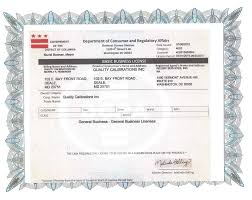
If you're interested in a career consulting, you may want to know how to get started on a job search. This article will explain what the job description of a consultant in New York is, what qualifications you should have, and tax implications of working as a consultant in New York. This article will give you valuable advice on starting a consulting company. We hope you found the article helpful. We wish you the best of luck in your new endeavors!
New York City job description: Consultant
While working as a consultant in New York City can be a great way to supplement your income, you should consider the practical and legal aspects of the position. As a consultant you will be responsible for solving complicated problems, giving presentations, navigating office politics and writing policy statements and contracts. A consultant can also get valuable experience in different industries.
As a consultant you will have to ensure that clients are satisfied with their final product. Whether that's creating an effective website or delivering a highly effective presentation, you'll have to keep your clients happy, and that means ensuring that you know the products and services you're recommending. Communicating well with clients is a must, regardless of whether they are calling, via email or in person. It is important to have at most two years of relevant experience.

New York City Consultant Qualifications
Becoming a consultant requires an understanding of the practical and legal aspects of the profession. This profession is flexible and can supplement other income streams. It is important to know about important legal considerations, including choosing the proper business entity, obtaining licenses, health and safety, tax issues, and working with policy statements and contracts. These are some helpful tips to help guide you on your path to becoming a consultant for New York City.
Working as a New York City consultant can have tax implications
You should consider a variety of factors before you begin a New York City consulting business. You must first determine what tax implications there will be. While you can usually claim up $5,000 as a startup expense, you need to make sure that any products you sell in the course of a demonstration is deductible. But, any products you sell are considered inventory. In this case, it's best not to deduct the inventory value. After you have sold all of your products, the inventory value can no longer be deducted from your tax. Your income will eventually be reduced by the inventory value.
You should also consider the tax structure for your consulting business. Many consultants are sole proprietors, partners or employees of a single company. You should consider how your legal structure will protect your personal assets against tax liabilities. If you intend to start a consulting business out of your home, you may be able claim the business use deduction. This can help to reduce your tax bill.
It's possible to start a consultancy business
Many of the world's most successful companies began as small businesses. You must be able to manage a business and understand its administrative aspects in order to succeed. Starting a consulting business can be easier than you thought. Once you have the basics of running your business, it is very easy to scale it up or down depending upon your life. This is especially helpful if your business is already managed by a consultant, and you want to create a stable income.

To attract clients, you must find a niche. Then, you must validate your chosen niche by speaking to people in the market and finding out if it is viable. You can also read industry publications or blogs to confirm that it is viable. Once you've identified your niche, begin to question "What does my niche really want?"
FAQ
How is consulting different to freelancing
Freelancers work as independent contractors and offer their services without the assistance of an agency or company. They charge hourly rates depending on the amount of time spent on a client's projects. Consultants often work for companies or agencies that employ them. They are often paid monthly or annually.
Freelancers tend to have more flexibility than consultants because they control their work hours and set their own prices. However, consultants often have better benefits, such as health insurance, vacation days, sick leave, retirement plans, etc.
How do I get clients to my consulting business?
Finding a passion area is the first step. It could be anything from social media to public relations, but there must be something you feel strongly about. If not, you may have to start small by finding a niche market such as web design. Once you've found this niche, make sure you understand what makes it tick. What problems can it solve? Why should people use this? But most importantly, what can you do to help them?
You can also try approaching businesses directly - perhaps they need someone who understands SEO or content creation, or maybe they just want to know where to go for advice on social media strategy.
If all else fails, why not offer your services at free events like networking evenings and conferences? You will meet potential customers and be able show your skills without having to spend money advertising.
Is consulting a real job?
Consulting is not just an entry-level career choice for people who want to make money fast - it's also a great way to learn valuable skills and build a solid foundation that you can use throughout your work.
Consulting offers many opportunities in project management as well as business development, strategy and training. You might find yourself working on projects ranging from small start-ups to large-scale international corporations.
Consulting provides you with the opportunity to develop and hone your skills, as well as gain experience within a range of industries. This could be learning to manage people, write proposals and manage budgets, analyze data and create presentations, or conduct market research.
What is the secret to modern consulting?
The first consultants were accountants who helped companies manage their finances. They became known as "accounting consultants." This was because they had become very skilled at managing financial information. They soon expanded their roles into other areas like human resources management.
The term "consultant" came from the French word for "to advise." It was used by businessmen to describe someone who could offer advice on how to run an organization. Today, business owners still use the term consultant to refer to any type of professional advisor.
What is the average time it takes to become a consultant
It depends on the industry and your background. Most people start with just a few months of work before finding employment.
However, many consultants spend years honing their skills prior to finding work.
What type of contracts are available to consultants?
When they are hired, most consultants sign standard employment contracts. These agreements include details such as how long the consultant will stay with the client, what he/she can be paid, and other important information.
Contracts will also outline the areas of expertise and compensation for the consultant. The agreement might state that the consultant will conduct training sessions, workshops or webinars.
Sometimes, the consultant simply agrees that a specific task will be completed within a set time frame.
In addition to standard employment agreements, many consultants also sign independent contractor agreements. These agreements allow the consultant freedom to work without being paid.
How much does it cost for a consultant to be hired?
There are many factors that influence the price of consulting services. These include:
-
Project size
-
Time frame
-
Scope of work
-
Fees
-
Deliverables
-
Other considerations such as experience level, location, etc.
Statistics
- On average, your program increases the sales team's performance by 33%. (consultingsuccess.com)
- My 10 years of experience and 6-step program have helped over 20 clients boost their sales by an average of 33% in 6 months. (consultingsuccess.com)
- 67% of consultants start their consulting businesses after quitting their jobs, while 33% start while they're still at their jobs. (consultingsuccess.com)
- Over 50% of consultants get their first consulting client through a referral from their network. (consultingsuccess.com)
- WHY choose me: Why your ideal client should choose you (ex: 10 years of experience and 6-week program has helped over 20 clients boost their sales by an average of 33% in 6 months). (consultingsuccess.com)
External Links
How To
How do you find a good advisor?
The first step in finding a good consultant is understanding what you want from your consultant. Are you looking for them to improve the performance of your website? Do you want them to optimize your site to rank higher in search engines? Maybe you are looking for someone to point out any problems with your current web host. After you have decided what services you need, it is time to start looking at potential companies. Although there are many consultants who claim to offer these services, very few of them can actually provide the required results. So how do you go about choosing one? Here are some things that you need to keep in mind when selecting a consultant.
-
Get recommendations. This is the best way to select a consultant. You don't want to hire someone you've never heard of before because you'll likely pay too much. However, you shouldn't work with someone with poor reputations. It's great if you get recommendations from people you trust. Even if you don’t have any referrals, you can still look online for reviews. Find testimonials and case study examples from customers who have used your product.
-
Ask around. Many people don’t know that they could gain from consulting. They think that since they're currently doing fine, they don't need to make changes. This is often false. Even if you have great results right now you probably haven't been keeping pace with new technologies or trends. You'll lose out on the opportunities to grow your company if you rely on old methods. It is always worthwhile to ask around for recommendations of good consultants.
-
You should verify their qualifications. You need to verify their qualifications when you are searching for a consultant. You must ensure they have the necessary skills and qualifications to carry out the tasks.
-
Find out what type of projects they are skilled in. This is false. Some areas require specific education or training. If you are looking for someone to create a WordPress theme, then you will not want to hire someone who isn't a specialist in Drupal. This is true for programming languages and graphic design. It is important to inquire about the types of projects that they work on.
-
You should know their prices. As we said, you don't want to pay too much for a consultant. However, you don't need to pay too much. There are many different types of consultants. Some charge hourly rates while others bill per project. Knowing exactly what you're paying upfront will save you money down the road.
-
Know what they offer. Are they offering free consultations or other services? Will they give you advice on how to set up your own system? Are they able to guarantee that your site will rank better after working with you? If you don't like what you hear during your consultation, you should feel confident knowing you can cancel without penalty.
-
Find out if the company offers discounts for several months or years. Many consultants offer discounted pricing for extended periods of time. While you don't necessarily need to commit for a whole year, you can still take advantage of any deals that they offer.